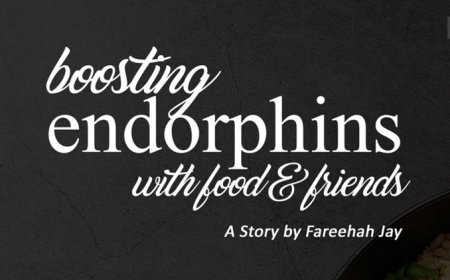The Emotion-Food Connection
The Emotion-Food Connection - by Fathima Abdoola
<h1>The Emotion-Food Connection</h1>
<h3>Understanding the Nutritional Impact</h3>
<p>Introduction</p>
<p>Food and emotions share a fascinating and intricate relationship. From joyful celebrations to soothing comforts during tough times, our emotions often influence our food choices. However, it is essential to recognize that the connection between emotions and food extends beyond the immediate satisfaction it provides. From a nutritional point of view, understanding the impact of emotions on our food choices can help us develop a healthier relationship with what we eat. In this article, we will explore the complex interplay between emotions and food, and how it affects our nutrition.</p>
<p>Emotional Eating</p>
<p>The Link between Emotions and Food: Emotional eating refers to the tendency to eat in response to emotions, such as stress, sadness, boredom, or happiness. It is a common coping mechanism for many individuals. During emotional eating episodes, people often crave specific types of food, typically high in sugar, fat, or salt. These "comfort foods" can provide temporary relief and pleasure due to their ability to trigger the release of feel-good chemicals in the brain, such as dopamine.</p>
<p>The Impact on Nutritional Choices: Emotional eating can significantly impact our nutritional choices. During emotionally charged moments, we often prioritize immediate gratification over long-term health. Unfortunately, comfort foods are often processed, high in calories, and lacking in essential nutrients. Frequent consumption of such foods can lead to weight gain, nutrient deficiencies, and an increased risk of chronic diseases like obesity, diabetes, and cardiovascular issues.</p>
<p>Recognizing Emotional Triggers</p>
<p>To break the cycle of emotional eating and make healthier food choices, it is crucial to identify and understand our emotional triggers. Emotional eating often stems from psychological or environmental factors, rather than genuine physiological hunger. By recognizing the emotional cues that lead us to eat, we can begin to develop healthier coping mechanisms that don't involve food. Strategies such as journaling, practicing mindfulness, and seeking support from friends, family, or professionals can help in managing emotional triggers effectively.</p>
<p>Building a Healthy Relationship with Food</p>
<p>Developing a healthy relationship with food involves nurturing a positive mindset and establishing balanced eating habits. Here are a few key principles to consider:</p>
<ol>
<li>
<p>Mindful Eating: Practicing mindful eating involves paying attention to the present moment and being aware of our food choices, sensations, and emotions while eating. By slowing down, savoring each bite, and listening to our body's cues, we can better understand our hunger and fullness signals, leading to more balanced food choices.</p>
</li>
<li>
<p>Balanced Nutrition: Focusing on a well-rounded, nutrient-dense diet is crucial for optimal health. Incorporating a variety of fruits, vegetables, whole grains, lean proteins, and healthy fats can provide the necessary nutrients while reducing the inclination to turn to comfort foods.</p>
</li>
<li>
<p>Finding Alternative Coping Mechanisms: Discovering alternative ways to deal with emotions can reduce the reliance on food for comfort. Engaging in activities like exercise, meditation, hobbies, or seeking support from loved ones can help alleviate stress and enhance emotional well-being.</p>
</li>
<li>
<p>Seeking Professional Help: For individuals struggling with emotional eating patterns or disordered eating habits, seeking guidance from registered dietitians or therapists who specialize in nutrition and mental health can be immensely beneficial.</p>
</li>
</ol>
<p>Conclusion</p>
<p>The intricate connection between emotions and food plays a significant role in our nutritional choices and overall well-being. By acknowledging the impact of emotions on our food decisions, we can develop a healthier relationship with what we eat. By practicing mindful eating, building balanced nutrition habits, finding alternative coping mechanisms, and seeking professional support when necessary, we can break free from emotional eating patterns and cultivate a positive, nourishing approach to food. Remember, true nourishment involves nurturing both our bodies and our emotional well-being.</p>
What's Your Reaction?























